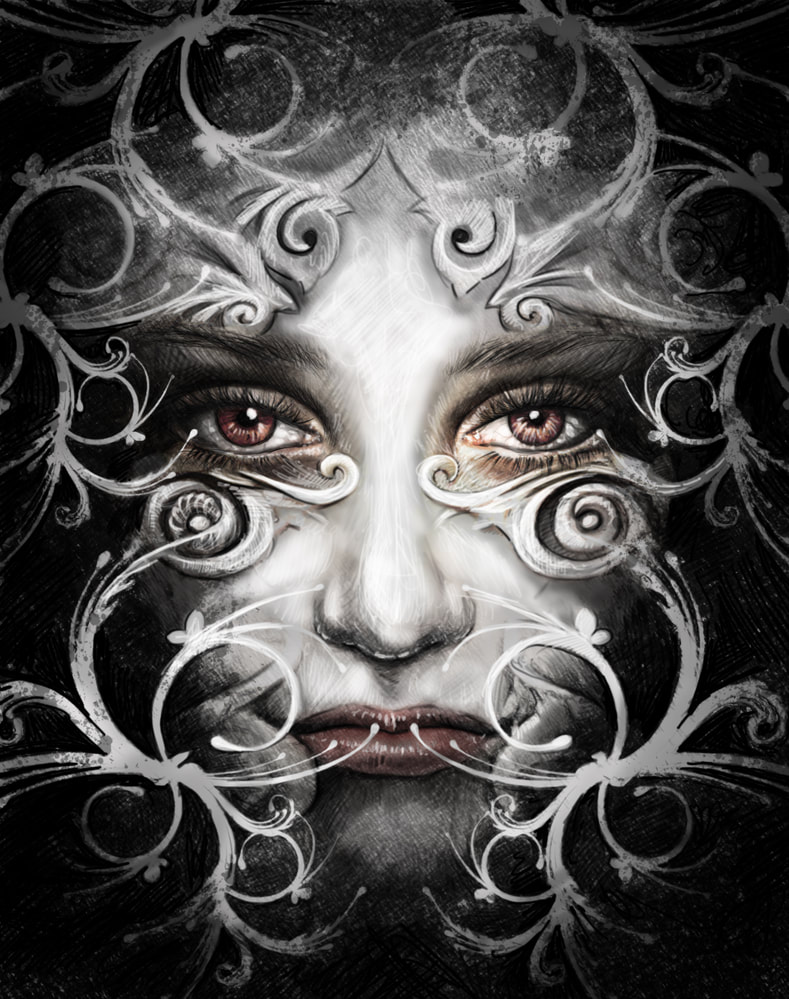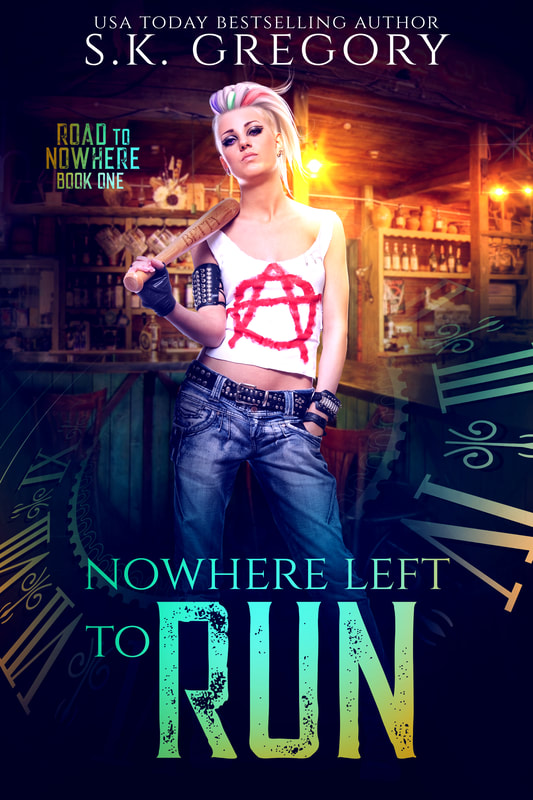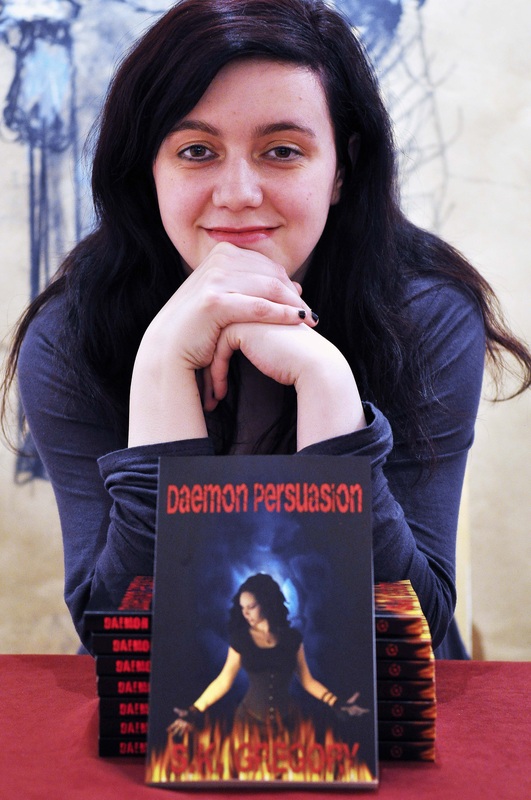|
My Fae… Waters and the Wild The title of my book tells a lot about where I took some of the inspiration for my fairies in Waters and the Wild – it’s a line from The Stolen Child by WB Yeats, a poem about changelings and dark, seductive fae. In Waters and the Wild, the central themes are around mental health. We never know if the fairies are real entities, or if they are a figment of my main character, Amy’s, imagination. If so, they are a form of psychosis that has kicked off at a family wedding in a fairy glen, during a period of great stress. If not, they’re the real thing: the Irish fairyfolk that inhabit the Antrim Glens. I’m from Northern Ireland, about 20 miles away from the Glens, and I spent my childhood in and out of that area. The place where I start the book is the Larragh Lodge, which is a restaurant set at the foot of Glenariff close to a great waterfall that can be easily climbed to. There are signs warning people entering the glen that fairies live there, and it’s all a bit touristy but once on the walk, it’s hard to deny the feel of the place. If there is a fairyland, surely it must be somewhere like this with its soft woodland, peaty water and great thundering falls. But the fairies in Ireland are not viewed as kind and gentle. People used to leave milk on their doorsteps (in some parts, some still do) to appease the little folk. Fairies stole babies (and that is a theme in my book). Many a person in Ireland, both North and South, would hesitate to cut down a fairy thorn tree for fear of the fairies’ wrath. Entire roads have been rerouted to avoid doing so. I wanted to capture that feel in my fairies. They are not gentle. They are beguilers and tricksters. They work to their own agenda and, if they are real, Amy is in great danger from them – and the man who tries to help her, Simon, is too. So, where did I get such dark fairies from? Well, the Irish legends about the sidhe (I use shee in my book as the Ulster-Scots dialect of the region would more commonly utilise that spelling) are a starting point. Forced into a separate world from ours, the sidhe were not considered a kind race, or one compatible to humans. In Peadar O’Guilin’s The Grey Lands duology (highly recommended) the sidhe are as dark as any monsters, and mine are not far behind. I show brownies, and manipulative Queens. The Pooka (puca), a malevolent shape-shifter, features. My fairies are in the sea, in the land, in trees and on the beaches. They cannot be escaped and that’s the crux to the book – whatever drives these visions in Amy must be confronted, not fled from. But confronting the sidhe is like trying to catch the wind: they twist, and escape, and then return to torment her. I like to think, when people read the book, that there is a sense of authenticity about the fairies. Not in a cute, Cottingley manner, and all the more real for that. All the settings I use exist. The bleak hills, the enchanted glens, the cold sea caves where the fairies reveal themselves and their agenda, can be visited. Because, for me, the fae and the land are inseparable. To write one, the other must be vivid and support the vision. Which is why, when I wrote about the fae, I chose the fairyland just up the road to begin their story – because only by feeling the places they could inhabit did I understand what it must feel like to be inhabited by them. And it’s horrific THE NYMPH OF HAMPSTEAD HEATH
At night, it’s almost silent. Just the rustling of the leaves, and the odd yip of foxes. The bats fly low, close to the water, mopping up moths, skimming the air. That’s at night. In the day, it’s different. Still quiet, still peaceful, but there are women in the pool of water. They don’t see me, in the water with them. They feel me sometimes, and they think it’s weeds, twisting against them. But they never see me. Not in the water, and not out of it either. They tell me their secrets and sometimes, just sometimes, I listen very closely. What sort of secrets? The sort you only tell another woman, here in the pond, separate from the world and guarded by me. And those secrets – they’ve barely changed, all through the years. Secret pregnancies, illnesses they’re too scared to face, relationship problems. Their fears. Mostly, I listen and the stories don’t touch me. Mostly, I’ve heard them all before and I know that come the next time Sandra or Jess come back to the pond, it will all be fixed. The money will have been paid, or the fight made up, and they’ll splash and shout and make the air tingle with happiness. Sometimes, though, things don’t get better. Those are the days when the sky clouds over, when the pond becomes grey. I get headaches on those days, and, when I get a headache everything in the pond goes not right. The birds find it hard to nest, and if they don’t nest we don’t get new ones for next year. The bees go off down the heath and leave my foxgloves to droop and die. I can’t be having that. Not at my pond. Because, see, I was given it to look after for my Queen. What’s a nymph to do? In my case, whatever it takes. Take Linda, from last week. She’s been coming here, every Tuesday morning, for weeks. She comes on her own, and she swims lengths. Head in the water, taking proper breathing breaks, up and down with an intensity it’s hard to match. Her mood is so hard the water barely breaks around her. Sometimes I can’t bear to be in the water with her, and then I climb into my tree and I watch, and I see the tightness of her shoulders. That’s what I mean about listening, see? It’s not just about your ears. I was listening, closer than ever, when she came back, week after week, and the darkness didn’t lift. I watched her, too, worried. I’ve seen it before, women who come into the waters and don’t want to leave. Don’t want to face life outside the pond. I’ve had to carry a few of them out before the life leaves their bodies. Once I was too late and she’s with me still, in the lake, never gone. That’s not something I want for anyone else, though – the lake’s not a good place to stay for anyone but me. So, last Monday I watched Linda swim her length after length, and I watched her get out, her swimming suit high on her leg, her arms bare. And I saw the bruises, down her arms, a big one on her thigh. I saw more, because I know how to look. An old cigarette burn on the back of her hand, a slight twist of a broken nose. When I see something like that, I have to act. That’s not the sort of secret I can allow my ladies to hold. That’s the sort that cuts them to the inside and makes the water angry. It’s the sort that makes me angry. But what good is an angry water nymph, I hear you ask. After all, I live in the pond. Well, when I’m angry I’m more powerful. I thrust the water away from me. I can manage, for a time, if I’m angry enough. I managed long enough to follow Linda home. I stayed while she changed and I checked some things in the house: checked her purse and, sure enough, she only had cash; checked the bedroom and it was tidy to the point of obsession; saw the meal already cooking on the hob; saw her pick up his things. And I waited, until night fell. I waited until I was shivery and had to run the shower and touch some water. She nearly found me then, muttering about gadgets having a life of their own. I waited until he came home and, as he walked in the door, I knew the smell of him from the water. He was the darkness inside her, the darkness she tried so hard to swim off. He ate her lovely meal, and didn’t thank her. I heard him take her to the bedroom, I heard the slap, her tears, the thud of her falling and I waited, splashing water, and I wasn’t sure I could do anything, so long from the pond. He left for the toilet in the night, across the wood-panelled floor. I watched, dripping, as he passed before me. I reached for him. He fell. Slipped in a puddle. A brief, bitten off yell as he toppled on the top stair. A single shove seen to him. Linda still comes to the pond. At first, in sadness. A different darkness, less red, just as dense. She did her laps and yet, as I watched, her arms became more relaxed, her strokes lazier. She started to talk to the other women. The air was light again; the sun shone; the birds nested. And now, five years on. She’s different. Changed. Older. In love, with a fat belly to match it and I look at her eyes, shining in the sun, and I’m glad I know how to listen well. And I’m glad the pond’s the place for secrets. Comments are closed.
|
Monthly Newsletter
Categories
About the Author:S. K. Gregory is an author, editor and blogger. She currently resides in Northern Ireland. “Description begins in the writer’s imagination, but should finish in the reader’s.” Archives
July 2024
Categories |
||||||||||||||||||||||||||||||||||||||||||||||||||||||
© 2024 S.K. Gregory
Proudly powered by Weebly






 RSS Feed
RSS Feed

